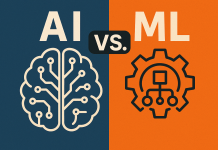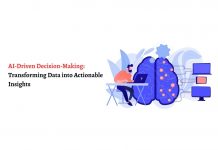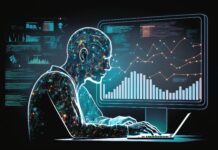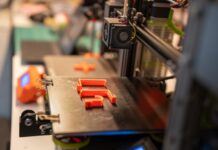Several industries, including healthcare, finance, and transportation, have already started to undergo a revolution thanks to artificial intelligence (AI). Operations are becoming more productive and efficient because of the increased adoption of AI technologies. It’s anticipated that more industries will transform in the years to come due to advances in AI technology. The six industries that artificial intelligence (AI) technologies are revolutionizing are covered in this article.
Manufacturing Industry
The manufacturing industry is being transformed by AI technologies, with machines automating various processes. By using AI, manufacturers can improve the speed and quality of their production lines. Robots having AI capabilities can work continuously without getting weary or making mistakes. These robots can carry out difficult operations, including product assembly, welding, and packaging. AI algorithms can also be applied to supply chain optimization, ensuring that the proper goods are available when needed.
Agriculture Industry
AI industries are also transforming the agriculture industry. Farmers can monitor their crops and livestock in real-time using sensors and drones. Afterward, this information can be utilized to optimize the usage of irrigation, fertilizer, and pesticides, increasing agricultural yields and decreasing waste. AI-powered machines can also be used to plant, harvest, and process crops, making farming more efficient. AI can also help to predict weather patterns and natural disasters, enabling farmers to take preventive measures.
Education Industry
The education industry is being transformed by AI technologies, with personalized learning becoming more common. AI algorithms can analyze data on individual students, such as their learning styles and progress, and provide personalized recommendations. This can facilitate independent learning for students and help them better comprehend challenging material. AI-powered chatbots can also provide instant support to students, answering their questions and providing guidance.
Retail Industry
The retail industry is being transformed by AI technologies, with AI-powered chatbots and virtual assistants becoming more common. These chatbots can provide instant customer support, answering questions and providing recommendations. AI algorithms can also analyze client information, such as past purchases and browsing patterns, and offer tailored recommendations. This can enhance client loyalty and increase sales.
Energy Industry
The energy industry is being transformed by AI technologies, with AI-powered sensors and algorithms used to optimize energy use. AI algorithms can analyze data on energy consumption, weather patterns, and other factors and provide recommendations for reducing energy usage. This can contribute to lowering energy prices and carbon emissions. AI-powered drones can also be used to inspect power lines and wind turbines, reducing the need for manual inspections.
Entertainment Industry
The entertainment industry is being transformed by AI technologies, with AI-powered algorithms used to personalize content recommendations. Streaming services like Netflix and Amazon Prime use AI algorithms to analyze user data and provide personalized recommendations on what to watch next. AI-powered chatbots can also be used to provide instant support to customers, answering questions and providing guidance.
Benefits of AI in Industries
Increased Efficiency
AI technologies have the potential to automate many processes, reducing the time and cost required to complete them. This results in enhanced production and efficiency, enabling firms to accomplish more with fewer resources.
Improved Accuracy
AI-powered machines and algorithms can perform complex tasks with greater accuracy and precision than humans. For instance, robots can be programmed to perform repetitive tasks, such as assembling products or packaging, without making errors. Similar to how people could overlook certain discoveries, AI algorithms can examine vast amounts of data.
Enhanced Safety
In industries such as manufacturing and energy, AI-powered machines and sensors can be used to monitor and detect potential hazards, reducing the risk of accidents and injuries. AI-based drones can assess hazardous places without sending people inside, saving time and money.
Key Things to Know About AI Industries
Data is Key
AI technologies rely on large amounts of data to operate effectively. It is, therefore, important for businesses to collect and analyze data to leverage the full potential of AI technologies.
AI is not a Replacement for Human Workers
While AI technologies can automate many processes, they are not a replacement for human workers. Many businesses still require human abilities like creativity, critical thinking, and emotional intelligence.
Ethics and Regulation
As AI technologies become more prevalent, businesses need to consider the ethical implications of their use. To guarantee that AI technologies are created and applied appropriately, rules are also necessary.
Collaboration is Key
AI technologies require collaboration between experts in different fields, such as computer science, engineering, and data analytics. Businesses need to foster collaboration and communication between these experts to leverage the full potential of AI technologies.
Conclusion
Numerous industries are being transformed by AI technology, which increases the effectiveness and efficiency of operations. Artificial intelligence is revolutionizing every aspect of our lives, from industry to entertainment. In the years to come, it is anticipated that even more industries will transform due to advances in AI technology. As a result, businesses must stay current with the newest advances in AI and employ AI technologies to remain competitive in the market.








